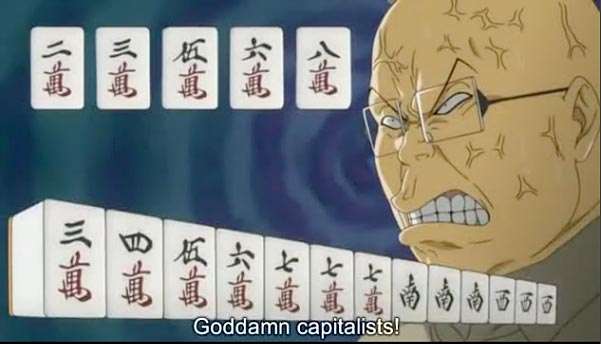From Helen Rittelmeyer‘s review of Yumiko Kurahashi’s The Adventures of Sumiyakist Q:
For one thing, Japanese literature has no tradition of satire. I did not realize this until I read it in the translator’s introduction (“only deviations from accepted socials norms have tended to be the objects of criticism . . . where there have been attempts at satire in the twentieth century . . . one gets a stronger sense of personal grievance than of objective criticism”), and if he says it, I suppose it’s true. I have heard that Americans visiting Japan are warned not to speak hyperbolically because they are liable to be taken literally, and it is difficult to imagine satire without exaggeration.
Is this true? Does Japan not have an Aristophanes or a Swift? I’m skeptical; I don’t see how a culture can stay sane or even survive without satire.

Even if it was once true of Japanese literature, it’s not true now. See Yasutaka Tsutsui, Sayonara Zetsubou Sensei, Legend of Koizumi, Oh! Edo Rocket, Jinrui wa Suitai Shamashita, Dai Mahou Touge, ….
Update: The challenges of translating humor. (Via the Sanity Inspector.)


Obviously she’s talking about serious literature, not anime. Even in English there’s less humor to be found in serious literature than in popular writings. However even with serious literature I suspect that the real problem is that the satire is there but the foreign reader can’t see it.
Japanese culture frowns on direct explicit criticism but there is plenty of room for indirect oblique criticism, especially in formal situations where just using the wrong honorific can be considered insulting.
As far as “Americans visiting Japan are warned not to speak hyperbolically because they are liable to be taken literally,” this should not be take to mean that the Japanese do not have a sense of humor. In fact it is probably just a valid with the roles reversed. Each language and culture has its own ways of signalling that you are saying something for rhetorical effect and don’t mean it to be taken literally. These signals sometimes fail even between native speakers and are very easy to mess up when dealing with foreigners.
Sly humor does NOT cross borders well. A few years ago a friend of mine went to Japan with an artistic exchange program. One of the artists was asked to give an informal talk and he gave a speech that might have killed at the Al Smith dinner…but the hosts were not amused…at all…I was told the whole thing nearly got derailed as the (unintentional) offense was that great.
A while back, I was (slowly, painfully) reading a short story (IIRC, from Tsutsui’s Warau Na) and while I understood every word and could tell that it was supposed to be biting social commentary, it just didn’t make sense to me, and attempting to describe it to someone else made it sound incredibly stupid and pointless. I’d have needed cultural notes that were longer than the story…
-j
Thank you for the link love!